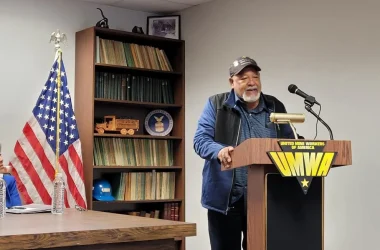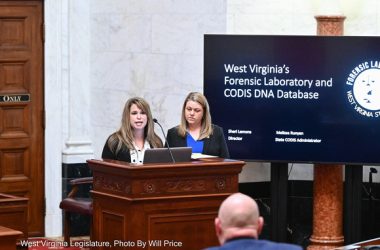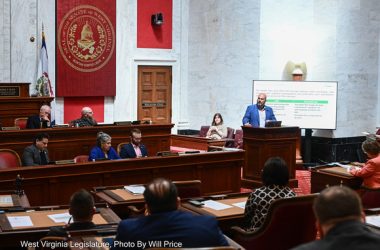By Phil Kabler
For the West Virginia Press Association
CHARLESTON, W.Va. — As legislators left Charleston Friday for the long Memorial Day weekend, closing out the second week of a special session to pass the state’s 2016-17 budget, the House and Senate had inched closer to a final deal on the $4.0 billion budget bill.
The question is whether the plan they are putting together will be vetoed by Gov. Earl Ray Tomblin – which would put the Legislature back at square one, with the clock ticking toward a July 1 state government shutdown if a budget bill isn’t passed by then.
The main issue is how much of the state’s Rainy Day emergency reserve funds will be used to close a $270 million shortfall in the 2016-17 budget.
On Tuesday, Tomblin told reporters he is inclined to veto any budget bill that takes more than a “few million dollars” from the Rainy Day fund to balance the budget.
“I’d be able to take a few million dollars, but not anything like $90 million or $100 million,” Tomblin said. “I’m flexible, but I’m not going to sit here and balance the entire budget out of the Rainy Day fund.”
On Friday, the House of Delegates approved its version of the budget bill (HB101) on a 61-37 vote. That plan uses $143 million of Rainy Day funds to close the funding gap, while the Senate is proposing a plan that uses closer to $200 million of Rainy Day funding.
During Friday’s passage vote, critics of the bill warned that it would be futile to build a budget plan using so much Rainy Day money.
“A lot of the work we’ve done this week is a fiction because we know we’re going to be back when the governor vetoes this bill,” warned Delegate Shawn Fluharty, D-Ohio.
However, backers of the budget bill are hoping the governor will sign it, rather than force the Legislature to come back to Charleston with the figurative time bomb of a July 1 government shutdown ticking.
“We’re just a short time away from July 1, and all the services we’ve come to expect, and the obligations we have to our state employees,” House Finance Chairman Eric Nelson, R-Kanawha, commented during the Friday budget vote.
Senate Finance Chairman Mike Hall, R-Putnam, said his hope is that Tomblin will treat a budget bill heavily reliant on Rainy Day funds as the equivalent of a continuing resolution, allowing state government operations to continue after July 1, until a special session to raise tax revenue could be called after the November elections.
“The one thing we can’t do is let the government shut down,” Hall said. “I don’t think the governor will let the government shut down.”
The issue of raiding the state’s Rainy Day funds came to a head after the House on Tuesday defeated legislation to raise about $76 million of new revenue by increasing state taxes on cigarettes and tobacco products.
House leadership was pushing the plan to raise the cigarette tax by 45 cents a pack, with comparable increases for smokeless tobacco, pipe tobacco, and cigarettes, as the only viable option of several tax increase proposals offered by Tomblin. The bill (SB1005) had narrowly passed the Senate on a 17-16 vote, and only because Sen. Robert Karnes, R-Upshur, a strong no-tax advocate, took a walk before the vote.
In the House, a coalition of Democrats who favor a $1 a pack cigarette tax hike joined with no-tax Republicans, many of whom had signed national activist Grover Norquist’s no tax pledge, to defeat the bill by a 44-55 margin.
“I think the Democrats played political games,” House Speaker Tim Armstead, R-Kanawha, said of the bill’s defeat. “I think the people of West Virginia need to know that, and the people of West Virginia will hold them accountable.”
Of the 36 House Democrats, only Delegate Patsy Trecost, D-Harrison, voted for the bill.
Democrats had decried the 45-cent tax increase as a “band-aid” that would barely patch together the 2016-17 budget, let alone address future budget deficits projected in 2018 and 2019, or provide long-term fixes to fund PEIA health insurance for public employees, higher education, or other crucial state programs.
They also argued that a $1 a pack increase would be a more effective deterrent to keep young people from taking up smoking, and to encourage smokers to quit.
“I can’t vote for this too-small tax when a larger tax would have a far, far larger benefit,” said Delegate Don Perdue, D-Wayne, a former Health and Human Resources Committee chairman. “I believe the 45-cent tax must die for the larger tax to have an opportunity to live.”
After the Memorial Day weekend recess, legislators will return to Charleston Tuesday afternoon for the 11th day of the special session on the 2016-17 budget.





